Think Global, Play Local
While it holds the distinction of being the world's largest toy company with total revenue of $5.86 billion, Mattel is on a mission to become so much more than that. With recent changes in leadership, structure and
April 6, 2018
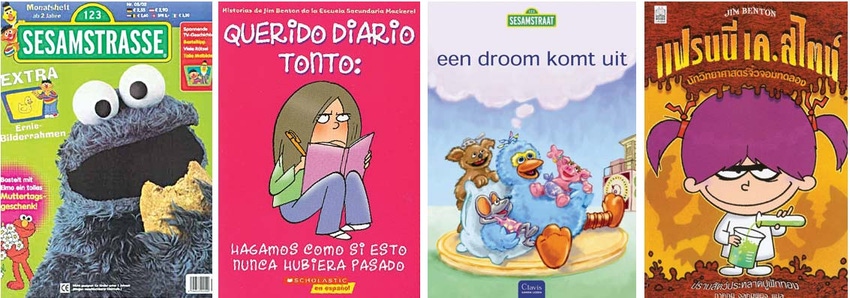
While it holds the distinction of being the world's largest toy company with total revenue of $5.86 billion, Mattel is on a mission to become so much more than that.
With recent changes in leadership, structure and vision, Mattel is committed to leveraging its global presence, its iconic brands and its partnerships to become a true multi-media player, a major force in the entertainment sector and a leader in play and child development.
One of the key corporate management changes occurred in January when president of international Bryan Stockton was named to the new position of chief operating officer, reporting to Bob Eckert, chairman and chief executive officer, with responsibility for day-to-day operations, including the design, development, marketing and sales of toy brands as well as licensed entertainment properties. At the same time, Mattel announced that Neil Friedman, president of Mattel Brands, was leaving the company. (He subsequently joined Toys 'R' Us as president of U.S. stores in April.) 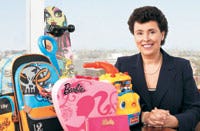
Another key organizational change and an important factor in the future of brand development and brand extensions was Mattel's decision to bring licensing together again under one global leader, Rosa Zeegers, who has been with the company for nearly 10 years holding various international positions in licensing, retail development and marketing. Zeegers is–to paraphrase the popular retail saying–the right person in the right job at the right time to lead Mattel's global consumer products group into new, innovative businesses and territories. From her passion for the business to her international expertise, to her savvy marketing skills and understanding of consumer needs, Zeegers is the ultimate globe trotting executive that is playing local and having fun doing it.
"It begins with the very exciting notion that Mattel is changing its corporate vision," explains Zeegers, senior vice president, global consumer products licensing. "For many years, Mattel aspired to be the premier toy company for today and tomorrow and now that has shifted to Mattel wanting to create the future of play." 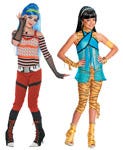
For Mattel, the "future of play" means engaging the customer across multi-platforms not only with traditional merchandise, but also with various events, co-branding and social media content. 
New global initiatives are already paying off as Mattel reported an eight percent increase in total revenue in 2010 to $5.86 billion. Furthermore, as testament to its commitment to global expansion, 46 percent of its revenue–$2.9 billion–was generated from international markets as follows: Europe, $1.5 billion; Latin America, $867.6 million; Asia Pacific, $333.3 million; and other markets, $211.5 million. 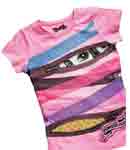
The El Segundo, Calif.-based Mattel also ranks as the world's fourth largest licensor, according to License! Global's exclusive Top 125 Global Licensors study, reporting $7 billion in retail sales of licensed merchandise in 2010.
In order to achieve its "future of play" mantra, Mattel has put in place three key strategies that also are driving factors for its brand licensing business.
They are:
grow core brands;
optimize entertainment; and
develop new franchises.
"Mattel is moving toward brand management or franchise management," says Zeegers. "We don't see the business merely as a toy business that has a licensing spin off anymore, but truly as a brand building business that we want to manage consistently and coherently at all the touch points with consumers."
Zeegers says that Barbie was the first brand to adapt this way of thinking.
"When Barbie repositioned and firmly re-rooted itself into fashion, the brand has gained momentum ever since. We see results in licensing specifically in the apparel business around the world." 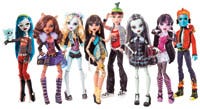
Zeegers points out that Barbie has teamed up with top designers and retailers including nOir Jewelry, Dover Street Market, Selfridges, Uniqlo and C&A.
This momentum, Zeegers says, goes beyond Barbie to Hot Wheels, which is recognized as the No. 1 die-cast vehicle in world.
"We need to move away from the 30-second TV ad focusing on toy product features and more towards experiential marketing, viral marketing and event marketing because we realize that it's no longer about manufacturers talking to consumers to generate brand awareness, it's all about generating friends awareness," she adds. "We need to create communities, whether it's on Facebook or any other network-based community, to get people to talk about the brand." 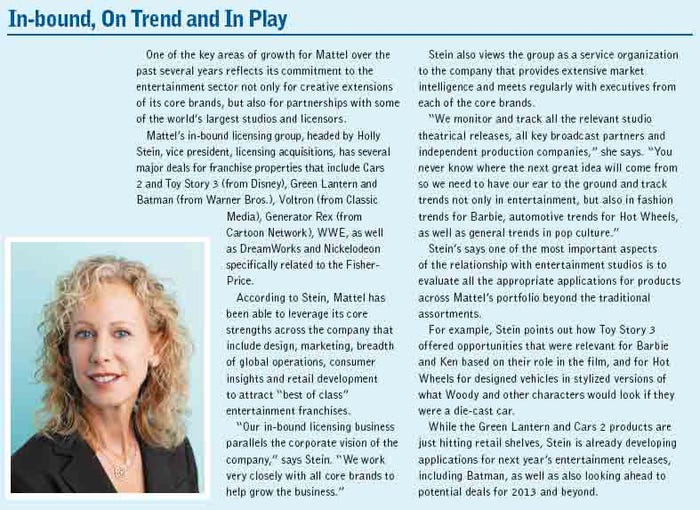
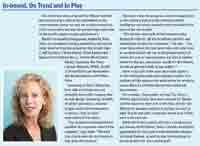
Zeegers points to the Indianapolis 500 as another example of how the Hot Wheels franchise is making the toys to boys brand change come to life through the "thrilling vehicle experience" campaign created to reach kids and adults. Hot Wheels built a replica of its well-known orange track play set and sent a life-size car down it prior to the annual race. The event, called "Hot Wheels Fearless at the 500," was aired by ABC in a 30-minute special, sponsored by Izod, prior to the Indy 500. In addition, the event was part of GetGlue, Verizon, Facebook and Twitter, plus a mobile game app was developed. 
Mattel is also teaming up with drivers that make the thrill ride experience come to life including Dale Earnhardt, Jr. This co-branded deal will include Earnhardt's dream car and die-cast range, and also include the creation of a corresponding line of licensed goods including back to school and apparel launching exclusively at a major retailer in the U.S. later this year. Similarly in Spain, Mattel has teamed up with Jorge Lorenzo, MotoGP world champion, for his own signature Hot Wheels car.
Zeegers says that similar co-branding efforts and events are being developed for Hot Wheels brand to further extend the shift from toy brand to lifestyle brand.
Another key growth factor for Mattel is developing new franchises, which began last year with the introduction of Monster High. The new property is also an example of how Mattel is executing its multi-platform global strategy. Monster High launched with books, webisodes, online, apps and consumer products reaching its target tween audience directly without theatrical or TV presence and is already in 15 countries. Toys, dolls, costumes, apparel and accessories were launched exclusively with several retailers and partnerships are expanded with Macy's, Justice, Claire's, Party City and Walmart. 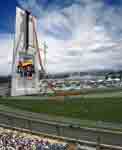
Monster High recently partnered with Kind Campaign, a movement, documentary and school program dedicated to spreading the message of kindness. As part of the alliance, beginning in the fall, Monster High will launch special programs and content dedicated to the theme that "it is cool to be kind."
The preschool Fisher-Price franchise is also moving towards the same brand approach, according to Zeegers, and has doubled its licensing business in last three years, rolling out worldwide with various products including carriages, car seats and apparel. In addition, Fisher-Price also launched on Facebook in November.
The third strategic initiative is to optimize entertainment through its partnerships with several major studios including Disney and Warner Bros. Consumer Products and WWE. Mattel has already begun releasing extensive products for two of this summer's blockbuster movies–Green Lantern and Cars 2. The entertainment group is being led by Holly Stein, vice president, licensing acquisitions.
Another important part of the "future of play" global strategy, says Zeegers, is how Mattel is transferring the power of its iconic brands into locally relevant businesses. 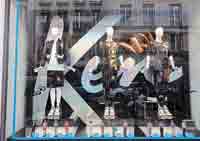
"Consumers on the one hand are more globalized, yet more verbal about local triggers," explains Zeegers. "We need to manage both and be truly global in our approach, yet execute in a locally relevant way."
Mattel also realizes the importance of content even though the company hasn't rushed into the major development of feature films for its iconic brands. The company's content is best described as a "multi-screen" strategy that focuses on direct-to-video, online, video games, social networks, publishing and television specials.
For example, Barbie recently released its 20th DVD, Barbie: A Family Secret, and Barbie: Princess Charm School is scheduled for release in the fall. A new holiday DVD, Barbie: A Perfect Christmas will also be released. Hot Wheels features "Battle Force 5," and Monster High now has more than 35 webisodes.
Mattel's understanding of retail and its strong relationships worldwide are also critical to its think global, act local focus, as well as its marketing and merchandising programs. While retail is becoming more globalized, Zeegers also realizes retail has a huge local component and it differs greatly from one country to another.
"Our key global accounts need to understand the strategic objectives of every retailer. Mattel brands are usually present in over 35 buy-in categories and we can help retailers achieve their growth objectives and create a win-win situation for them and for our licensees," she says.
"We are a company that has iconic brands that we are able to keep relevant," she explains. "We are moving from toys to play, from brand awareness to friends awareness, from TV commercials to experiential marketing. We are truly a global company with global brands and global appeal, but with local relevance, local retail relationships and local understanding of our consumers." 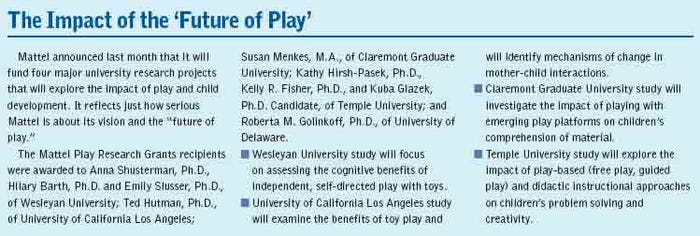

Considering its impressive and diverse initiatives across its brand portfolio worldwide, Mattel is not only focused on the "future of play," but the company is focused on the future of growth and is playing to win.
You May Also Like






